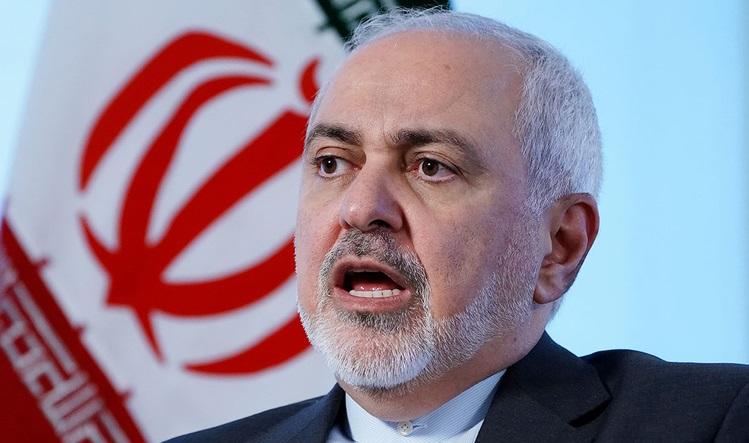Iranian Foreign Minister Mohammad Javad Zarif made a series of threats over ongoing tensions in the Persian Gulf amid a visit by Germany’s top diplomat who sought to diffuse the situation.
On Monday, Zarif threatened that the United States”cannot expect to stay safe” after initiating an economic war against the Islamic republic in the wake of President Trump’s decision more than a year ago to withdraw from the 2015 nuclear deal, along with tough sanctions targeting Iran’s oil sector.
“Mr. Trump himself has announced that the U.S. has launched an economic war against Iran,” said Zarif according to the Associated Press, adding “The only solution for reducing tensions in this region is stopping that economic war.”
“Whoever starts a war with us will not be the one who finishes it,” he added.
For his part, German Foreign Minister Heiko Maas insisted his country and other European nations want to find a way to salvage the nuclear deal, which saw Iran limit its enrichment of uranium in exchange for the lifting of economic sanctions. But he acknowledged there were limits.
“We won’t be able to do miracles, but we are trying as best as we can to do prevent its failure,” Maas said.
However, Europe has yet to be able to offer Iran a way to get around the newly imposed U.S. sanctions. Meanwhile, a July 7 deadline — imposed by Iran — looms for Europe to find a way to save the unraveling deal. –Associated Press
Anger over Israel
At one point during the meeting, Germany’s Heiko Maas angered the Iranian diplomat while discussing Israel.
“Israel’s right to exist is part of Germany’s founding principle and is completely non-negotiable,” said Maas, adding “It is a result of our history and it’s irrevocable and doesn’t just change because I am currently in Tehran.”
According to the report, Zarif grew visibly angry, then offered a list of problems throughout the Middle East, ranging from al-Qaeda to the bombing of Yemeni civilians which he blames on the US and its allies – primarily Saudi Arabia.
“If one seeks to talk about instability in this region, those are the other parties who should be held responsible,” said Zarif.
Zarif’s sharp tone likely comes from Iran’s growing frustration with Europe, as well as the ever-tightening American sanctions targeting the country. Iran’s national currency, the rial, is currently trading at nearly 130,000 to $1. It had been 32,000 to the dollar at the time of the 2015 deal. That has wiped away people’s earnings, as well as driven up prices on nearly every good in the country.
European nations had pledged to create a mechanism called INSTEX, which would allow Iran to continue to trade for humanitarian goods despite American sanctions. However, that program has yet to really take off, something Iran’s foreign ministry spokesman noted before Zarif and Maas spoke to reporters.
“We haven’t put much hope in INSTEX,” spokesman Abbas Mousavi said, according to Iranian state television. “If INSTEX was going to help us, it would have done so already.” –Associated Press
In withdrawing from the nuclear deal, Trump noted that it hadn’t limited Iran’s ballistic missile program, or dealt with what US officials describe as Tehran’s malign influence throughout the wider region.
According to the Tasnim news agency, Iran’s deputy head of their nuclear program, Ali Asghar Zarean, said Tehran had increased the number of centrifuges from 720 in 2015 before the 2015 nuclear deal, to 1044 now at their Fordo underground facility.
The head of the Atomic Energy Organization of Iran, Ali Akbar Salehi, said last month that Iran had begun installing a chain of 20 IR-6 centrifuges at its underground Natanz enrichment facility. Iranian officials say the IR-6 can enrich 10 times faster than an IR-1.
In late May, the U.N. nuclear watchdog said that “up to 33” more advanced IR-6 centrifuges have been installed and that “technical discussions in relation to the IR-6 centrifuges are ongoing.”
Under terms of the nuclear deal, Iran is allowed to test no more than 30 of the IR-6s once the deal has been in place for 8 1/2 years. The deal is murky about limits before that point, which will arrive in 2023. –Associated Press
On Wednesday, Japanese Prime Minister Shinzo Abe will arrive in Tehran as an interlocutor for Trump. Japan was previously a buyer of Iranian oil until the US sanctions took effect.
via ZeroHedge News http://bit.ly/2K98LYe Tyler Durden
